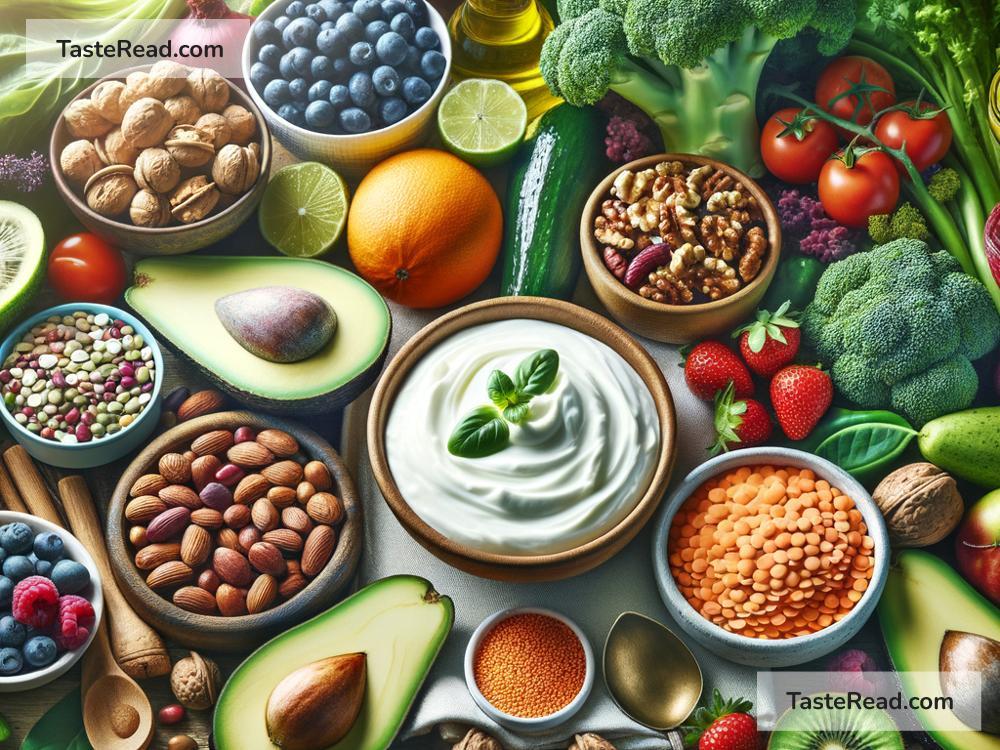Foods to Boost Your Incretin Response: A Simple Guide to Better Health
Incretins might sound like something out of a science lab, but they’re actually a natural part of your body. They’re hormones that help regulate your blood sugar by signaling your pancreas to release insulin after you eat a meal. Incretins like GLP-1 (glucagon-like peptide-1) and GIP (glucose-dependent insulinotropic polypeptide) make sure your blood sugar levels stay balanced.
If your incretin response isn’t working well, you may struggle with high blood sugar levels, which could lead to type 2 diabetes or other health problems. The good news is that certain foods can help support your incretin system and improve how your body handles blood sugar. Let’s dive into the foods that can make a difference in a simple, easy-to-understand way!
1. High-Fiber Foods: The Blood Sugar Stabilizers
Fiber is a superstar for your health, especially when it comes to improving your incretin response. Foods high in fiber promote slower digestion and steady absorption of glucose. This not only helps control blood sugar levels but also boosts GLP-1 levels in your gut.
Fiber-Rich Foods to Include:
- Whole grains: Oats, quinoa, brown rice, and barley.
- Fruits: Apples, pears, oranges, and berries.
- Vegetables: Broccoli, spinach, carrots, and Brussels sprouts.
- Legumes: Lentils, chickpeas, and kidney beans.
Adding these fiber-packed foods to your meals can help your incretin hormones work better, keeping your blood sugar stable throughout the day.
2. Healthy Fats: Enhance GLP-1 Production
Healthy fats, found in natural foods like nuts and avocados, can also support incretin response. When you eat fats in moderation, they can improve GLP-1 secretion, which helps your body with insulin release after meals.
Healthy Fat Options:
- Avocados: Full of heart-healthy fats and fiber.
- Nuts and seeds: Almonds, walnuts, chia seeds, and flaxseeds.
- Olive oil: High-quality, extra virgin olive oil for cooking or salad dressings.
- Fatty fish: Salmon, mackerel, and sardines contain omega-3 fatty acids.
These foods not only support your incretin system but also protect your heart health, making them a win-win for your body.
3. Protein-Rich Foods: The Insulin Helpers
Protein isn’t just for building muscles; it also plays a role in boosting incretin hormones. When you have protein with your meals, it slows down digestion and triggers the release of GLP-1. This means your pancreas has time to release just the right amount of insulin.
Protein Sources:
- Eggs: A versatile choice packed with nutrients.
- Greek yogurt: High in protein and gut-friendly probiotics.
- Chicken and turkey: Lean meat options for your main meals.
- Tofu and tempeh: Plant-based proteins for vegetarians and vegans.
Including a source of protein in every meal is a simple way to improve your incretin response and support your overall health.
4. Fermented Foods: Support Your Gut Health
Your gut plays an important role in incretin production, and a healthy gut means better incretin function. Fermented foods are full of probiotics, which are good bacteria that help keep your digestive system working smoothly. These probiotics can enhance incretin secretion, improving your body’s ability to regulate blood sugar.
Fermented Foods to Try:
- Yogurt: Look for unsweetened, live-culture options.
- Kefir: A tangy, probiotic-packed drink.
- Sauerkraut: Fermented cabbage that’s great as a side dish.
- Kimchi: Spicy fermented vegetables from Korea.
- Miso: A Japanese fermented soybean paste used in soups and sauces.
Adding fermented foods to your diet a few times a week can boost gut health and improve your incretin hormone levels.
5. Dark, Leafy Greens: The Nutrient Powerhouses
Dark, leafy greens like spinach, kale, and Swiss chard are rich in magnesium, which is essential for your body’s insulin response. They also contain antioxidants that support overall health and indirectly enhance incretin function.
Greens to Include:
- Spinach: Easy to add to smoothies, salads, or stir-fries.
- Kale: Perfect in a salad or baked as healthy chips.
- Swiss chard: Great for sautéing as a side dish.
These greens are low in calories but high in nutrients, making them a fantastic part of any meal.
6. Fruits with Low Glycemic Index: A Sweet Treat for Hormones
Not all fruits are created equal for your blood sugar. Fruits with a low glycemic index (GI) release sugar slowly into your bloodstream and help support incretin hormones.
Best Fruits for Blood Sugar:
- Berries: Blueberries, raspberries, and strawberries.
- Citrus fruits: Oranges, grapefruits, and lemons.
- Apples: Especially with the skin for added fiber.
These fruits are a natural way to satisfy your sweet tooth while keeping your incretin system healthy.
Small Changes, Big Results
Improving your incretin response doesn’t mean you need to completely overhaul your diet. Start by adding one or two of these foods to your meals each day. Simple changes, like swapping white rice for quinoa or snacking on a handful of nuts, can make a big difference over time. Pair these foods with regular exercise, good hydration, and enough sleep to keep your body running smoothly.
Your incretin hormones are key players in blood sugar control. By eating foods that support their function, you’re not just improving your blood sugar levels—you’re taking steps toward a healthier, happier you!
Take small but meaningful steps today to make better food choices, and watch as your body thanks you for the care you give it.


